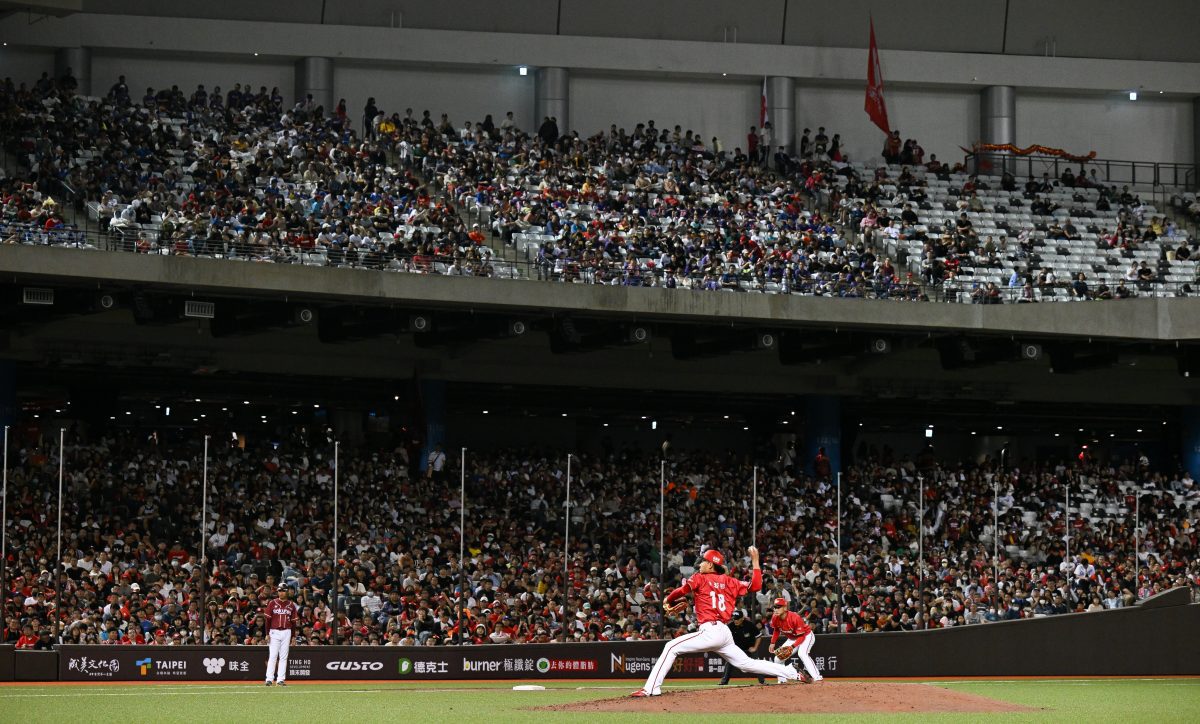


With multiple CPBL players receiving suspensions recently for playing poker in legal venues, World Baseball Network looks at past game-fixing and gambling scandals in Taiwan’s highest level of professional baseball, the Chinese Professional Baseball League.
The CPBL maintains a strict no-gambling policy, and each of the league’s six organizations follows suit. Similar to Nippon Professional Baseball, there have been numerous instances in which fans have looked down upon baseball in Taiwan.
Troubles Begin in 1997
The first CPBL season took place in 1990, and the league’s popularity in Taiwan began to grow year by year. The Taiwan national team succeeded in international tournaments in the 1980s, winning the silver medal in the 1984 Los Angeles Summer Olympics.
During the 1997 season, CPBL fans learned players were fixing games, often for double their monthly salary. How could players who worked so hard to perfect their passion and baseball skills ruin the integrity of the game? As a result, CPBL fans turned their attention to Major League Baseball and NPB in Japan, and attendance plummeted dramatically.
The China Times Eagles became defunct after the 1997 season, as did the Wei Chuan Dragons and Mercuries Tigers after the 1999 season, primarily because of financial instability. The China Time Eagles became known as the “Black Eagles” after reports that Taiwanese gangs could pay the team to lose on purpose for hundreds of thousands of dollars.
The T-REX Is Extinct
In July 2005, Australian Chinatrust Whales pitcher Brad Purcell was photographed conversing with Taiwanese gang members, adding fuel to the fire of potential gambling scandals across the league.
Then, in 2008, an investigation into the dmedia T-REX took place. Their manager, Wu Chao-hui, reportedly told players to “throw wild pitches, fumble and commit other fielding errors to lose the game narrowly.”
The dmedia T-REX’s original name was the Macoto Cobras. One of the buyers of the dmedia T-REX was Lin Peng-wen, a known gangster and bookmaker in Taiwan. Lin’s negative influence and history in gambling forced players to take bribes to throw games, causing a massive stir.
The T-REX were removed from the CPBL following an investigation on October 23, 2008. The D-Media System Company, which took ownership of the T-REX, was reportedly unaware Lin had previous affiliations with gangs and gambling in Taiwan. Hard to believe, I know.
Brother Elephants and the “Windshield Wiper”
After the 2010 Taiwan Series, the CPBL introduced an extreme game-fixing scandal involving the Brother Elephants.
Players on the Elephants received money to throw games from a gambler gang run by Cai Zhengyi, known as the “Windshield Wiper.” Brother Elephants outfielder Chen Chih-yuan and La News Bears pitcher Chang Chih-chia demanded money from Zhengyi and his gang to fix games. In total, 25 players and gamblers faced indictments for their participation.
According to a study regarding game-fixing incidents in the CPBL written by Wensheng Wang and Renfu Lo at the National Taiwan University of Physical Education and Sport, Taiwan, Zhengyi worked with multiple partners in the operation. The “Windshield Wiper” had his partner, Huang Renyi, to handle the finances.
Former Elephants pitcher Zhuang Youlin talked with then-current Brothers players to see who was interested in fixing games. In their study, Wang and Lo reported pitchers received more money than position players to fix games because they had the game in the palm of their hands. Finally, Elephants manager Nakagomi Shin was found to have deliberately thrown games, using curious game tactics. Shin’s attempt to flee to Japan failed, and Taiwan officials arrested him.
The Aftermath
Maybe more than NPB, players in Taiwan faced a tough decision regarding game fixing and gambling. Either throw games or face the consequences of gang violence.
Attendance in the CPBL has varied dramatically, but fans showed little interest after the gambling scandals. After the game-fixing scandal involving the Brother Elephants in 2010, CPBL attendance lowered by 28 percent, and the Elephants experienced a 32 percent decrease in attendance for their games the following season.
Nowadays, the CPBL operates smoothly. For the 2024 season, it has added a new expansion franchise, the TSG Hawks. It is an undervalued professional baseball league in the United States, with Baseball America comparing it to somewhere between Low-A and High-A in terms of competition and level of player skill set.
So, are these game-fixing and gambling scandals continuing in the CPBL? The problem is that we will only know once it’s too late. Let’s hope it doesn’t get too late.
___
WBN CPBL: https://worldbaseball.com/?s=CPBL
Photo Credit: Jo Hsi Hsu #18 of Wei Chuan Dragons pitches in the top of the fifth inning during the CPBL game between Rakuten Monkeys and Wei Chuan Dragons at Taipei Dome on March 30, 2024 in Taipei, Taiwan. (Photo by Gene Wang/Getty Images)